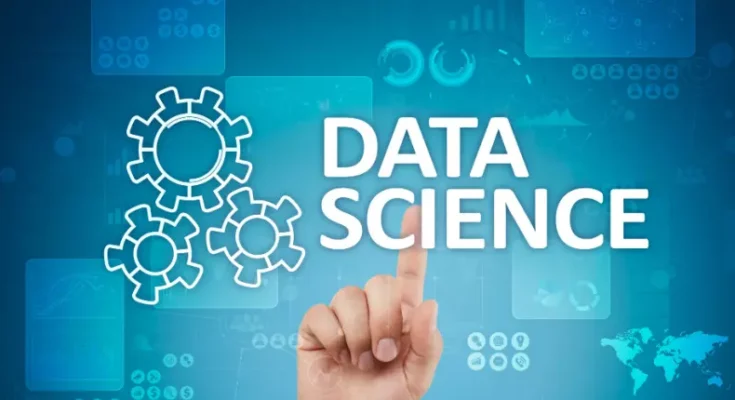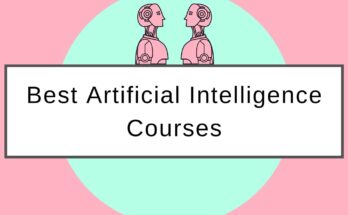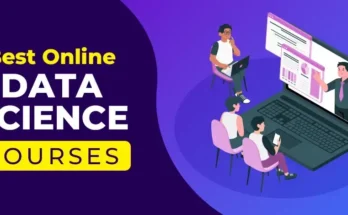Data science is a rapidly growing field that combines various aspects of data analysis, statistics, and programming to extract valuable insights from data. It is a multidisciplinary field that has applications in a wide range of industries, from healthcare to finance and beyond. If you’re a beginner looking to get started with data science, understanding the right course syllabus is essential. In this article, we will explore a comprehensive data science course syllabus for beginners, answer frequently asked questions, and provide a concluding perspective on the field.
Introduction to Data Science
The journey into data science begins with a strong foundation. In this section, you’ll learn the fundamental concepts of data science, its applications, and the importance of data in decision-making processes. Topics covered may include:
- What is data science?
- The data science process
- Role of data scientist
- Applications of data science
- Data-driven decision making
Programming Fundamentals
To become a proficient data scientist, you need to have strong programming skills. This section focuses on the basics of programming, with a specific emphasis on Python, a popular language in data science. Topics covered may include:
- Introduction to Python
- Variables, data types, and operators
- Control structures (if, loops)
- Functions and modules
- Error handling
Data Manipulation and Analysis
This section delves into the core of data science: manipulating and analyzing data. You will learn how to work with data sets and perform essential data wrangling tasks. Topics covered may include:
- Data structures in Python (lists, dictionaries, etc.)
- Data manipulation with Pandas
- Data cleaning and preprocessing
- Exploratory Data Analysis (EDA)
Data Visualization
Effective data visualization is key to conveying insights and findings. In this section, you will explore various visualization techniques and tools to present data in a compelling manner. Topics covered may include:
- Introduction to data visualization
- Matplotlib and Seaborn for plotting
- Interactive visualizations with Plotly
- Dashboard creation with tools like Tableau
Statistics and Probability
Statistics is the backbone of data science, providing the tools needed to understand and draw conclusions from data. This section introduces the fundamental concepts of statistics and probability. Topics covered may include:
- Descriptive statistics
- Probability distributions
- Hypothesis testing
- Statistical inference
- Regression analysis
Machine Learning
Machine learning is a core component of data science. This section takes you through the basics of machine learning, including different algorithms and techniques. Topics covered may include:
- Supervised learning
- Unsupervised learning
- Model evaluation and selection
- Feature engineering
- Overfitting and underfitting
Deep Learning
Deep learning is a subfield of machine learning that focuses on neural networks and their applications. This section introduces the principles of deep learning and its significance in data science. Topics covered may include:
- Introduction to neural networks
- Deep learning frameworks (TensorFlow, PyTorch)
- Convolutional Neural Networks (CNNs)
- Recurrent Neural Networks (RNNs)
- Transfer learning
Big Data Technologies
In today’s data-driven world, handling large datasets efficiently is crucial. This section explores big data technologies and tools that are commonly used in data science. Topics covered may include:
- Introduction to big data
- Hadoop and MapReduce
- Apache Spark
- NoSQL databases
- Distributed computing
Data Science Tools and Libraries
Data science relies on a variety of tools and libraries. In this section, you will learn about popular tools and libraries used by data scientists. Topics covered may include:
- Jupyter Notebooks
- Git and version control
- Data visualization tools
- IDEs for data science
- Package management with pip and conda
Real-World Projects
The best way to learn data science is by working on real-world projects. In this section, you’ll have the opportunity to apply your knowledge to solve practical problems. Topics covered may include:
- Project planning and scoping
- Data collection and cleaning
- Analysis and modeling
- Visualization and communication of results
- Project presentation and documentation
Frequently Asked Questions (FAQ)
Q1: Do I need a background in mathematics to start a data science course?
A: While a basic understanding of mathematics is helpful, many data science courses are designed for beginners and provide the necessary mathematical concepts as part of the curriculum.
Q2: What are the prerequisites for a data science course?
A: Prerequisites may vary by course, but a general understanding of programming and some familiarity with mathematics can be beneficial. Many courses are designed for beginners.
Q3: How long does it take to complete a data science course?
A: The duration of a data science course can vary widely. Some are as short as a few weeks, while others may take several months. The pace of learning depends on the course and your commitment.
Q4: What career opportunities are available after completing a data science course?
A: Completing a data science course opens up opportunities in various fields, including data analyst, data scientist, machine learning engineer, and more. It’s a versatile field with many career options.
Q5: Are online data science courses as effective as in-person courses?
A: Online data science courses can be just as effective as in-person courses if they are well-structured and provide hands-on experience. Many online courses offer flexibility and accessibility.
Q6: How can I build a portfolio as a data science beginner?
A: Building a portfolio involves working on personal projects and showcasing your skills. Many data science courses include project work, and you can also explore open datasets for practice.
Q7: Is it necessary to learn both machine learning and deep learning as a beginner?
A: It’s not necessary, but having a basic understanding of both can be beneficial. Machine learning is more fundamental, while deep learning is a subset that focuses on neural networks.
Q8: What is the difference between data science and data analysis?
A: Data analysis focuses on examining and interpreting data, while data science encompasses data analysis and also includes data manipulation, machine learning, and other advanced techniques.
Q9: What are the key challenges in data science?
A: Some key challenges in data science include data quality issues, model selection, overfitting, and ethical considerations when handling sensitive data.
Q10: Is data science suitable for individuals from non-technical backgrounds?
A: Yes, data science is accessible to individuals from non-technical backgrounds. Many courses are designed to cater to beginners and provide necessary technical skills.
Also Read: Data Science Courses for Doctors
Conclusion
Embarking on a journey into the world of data science as a beginner can be a rewarding and intellectually stimulating experience. This comprehensive course syllabus is designed to equip you with the necessary skills and knowledge to thrive in this field. As you progress through these topics, you will gain a strong foundation in data science, from programming and data manipulation to advanced machine learning and deep learning techniques.
Remember that learning data science is an ongoing process. It’s essential to keep exploring and applying your knowledge through real-world projects. The field of data science is dynamic and ever-evolving, offering a wide range of opportunities and challenges. Whether you’re looking to make a career transition or simply explore a new passion, the world of data science is open to beginners willing to learn and grow.
In conclusion, data science is not just a career path; it’s a journey of discovery and innovation. With the right course syllabus and dedication, you can embark on this exciting adventure and become a proficient data scientist. So, take the first step and start your data science journey today!




